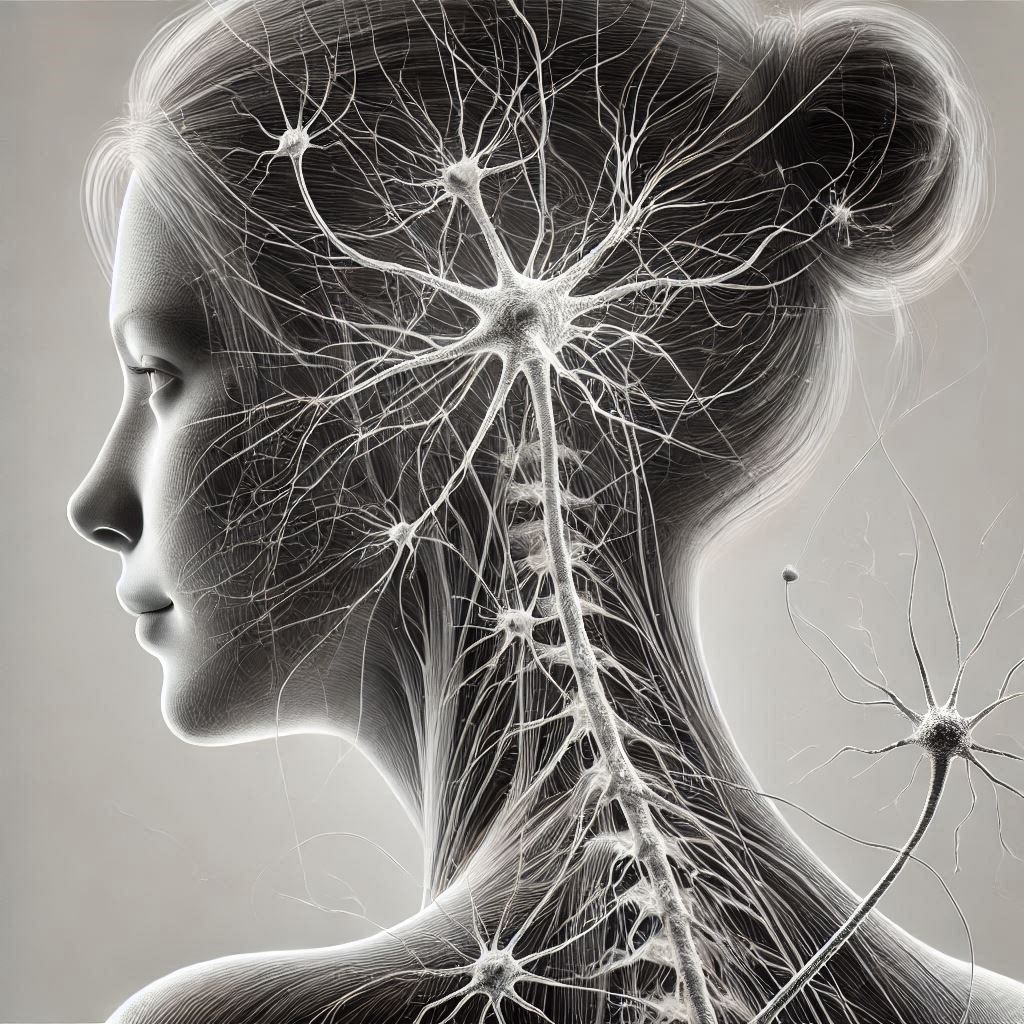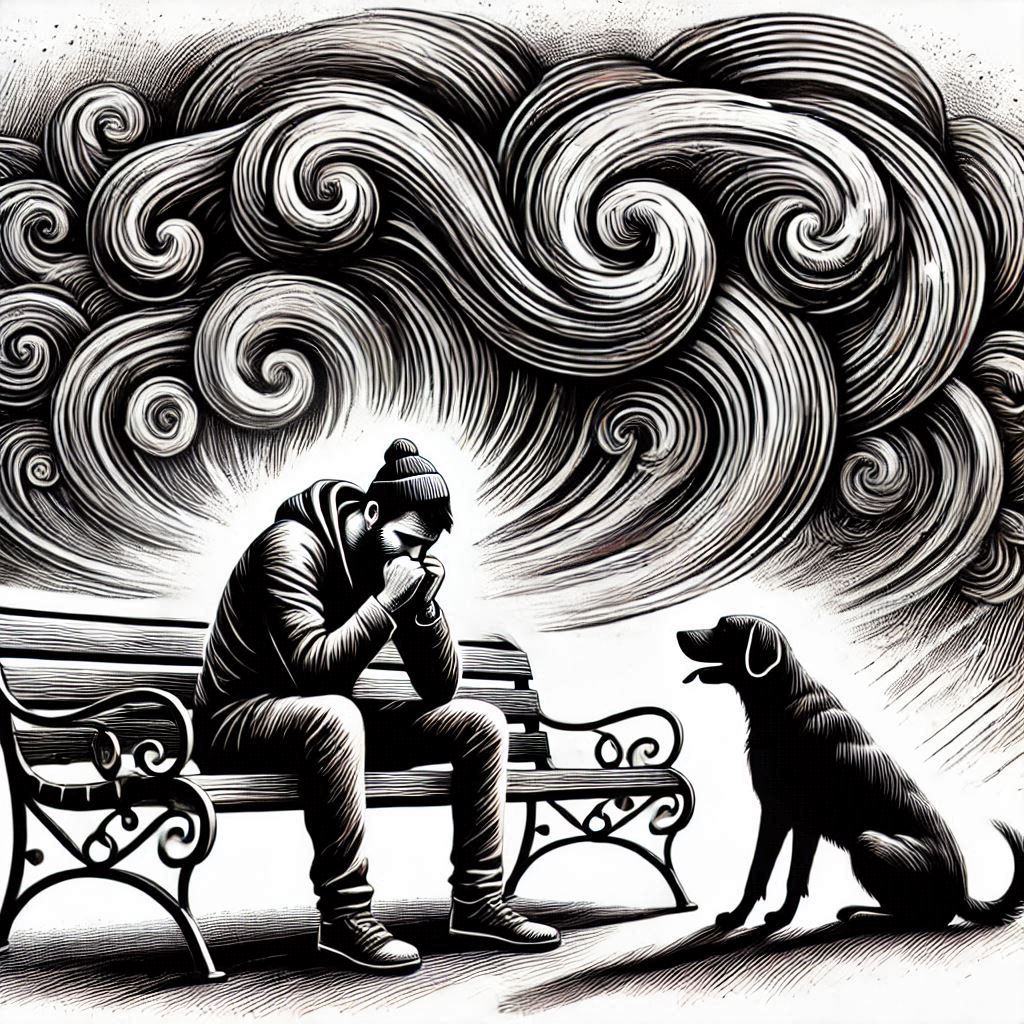Have you ever woken up in the middle of the night, your heart racing, not quite sure why? It’s more common than you might think. Panic attacks, those overwhelming surges of anxiety, don’t just happen during the day. They can creep into your sleep too. Imagine you’re peacefully dreaming, and suddenly, you’re jolted awake with a pounding heart and a sense of doom. Scary, right?
In this post, we’ll dive into what nocturnal panic attacks are, why they happen, and what you can do about them. Whether you’ve experienced this yourself or know someone who has, understanding the root of the problem is the first step toward finding a solution. Let’s explore the world of sleep and anxiety together, and figure out how to make those nights a little more restful.
What Are Nocturnal Panic Attacks?
Waking up in the middle of the night with a sudden and intense feeling of fear can be terrifying. This is what happens during a nocturnal panic attack. Unlike daytime panic attacks, which can be triggered by stress or certain situations, nocturnal panic attacks hit when you’re fast asleep. Imagine resting peacefully only to be jolted awake by an overwhelming sense of terror. It’s more than just a bad dream; it can leave you feeling disoriented and afraid to fall back asleep.
Symptoms of Nocturnal Panic Attacks
Nocturnal panic attacks can be just as intense as those experienced during the day. If you’ve ever had one, you might recognize some of these symptoms:
- Sweating: Waking up drenched in sweat, even if it’s not hot in your room.
- Rapid heart rate: Feeling your heart pounding in your chest as if you’ve run a marathon.
- Feelings of terror: An overwhelming sense of fear that can make it hard to go back to sleep.
- Shortness of breath: Struggling to catch your breath, making you feel like you’re suffocating.
- Chills or hot flashes: Sudden changes in body temperature that make you shiver or sweat more.
- Nausea: A queasy stomach can add to the discomfort and fear.
- Chest pain: Sharp or dull pain in your chest that can make you think you’re having a heart attack.
These symptoms can make you feel like something terrible is happening, even if you’re safe and sound in your own bed.
How Common Are They?
You might wonder if you’re the only one experiencing these nighttime terrors. The truth is, nocturnal panic attacks are surprisingly common. According to the Anxiety and Depression Association of America, about 50% to 70% of people with panic disorder have experienced at least one nocturnal panic attack.
Research also shows that roughly 18% of the general population have a panic attack at some point, and out of those, around 30% may experience them at night. These statistics highlight that while they’re not uncommon, nocturnal panic attacks can still feel quite isolating.
Understanding how common these attacks are can be comforting. It reminds us that while panic attacks are frightening, there’s a shared experience out there, and help is available. For more information, you can read about how people manage panic disorders on WebMD.
By knowing the symptoms and prevalence of nocturnal panic attacks, you’re already taking the first step in addressing them. The more you know about what you’re experiencing, the better you can handle those unsettling nighttime episodes.
Causes of Panic Attacks While Sleeping
Panic attacks during sleep can be particularly distressing, leaving you feeling vulnerable and confused. Understanding the causes is crucial in managing and preventing these night-time terrors. Let’s dive into some of the primary factors that can lead to panic attacks while sleeping.
Role of Stress and Anxiety
Daily stress and anxiety can have a big impact on our sleep. We often think of stress as just a daytime issue, but it can sneak into our nights too. When we’re stressed or anxious, our brains are in overdrive, and this doesn’t just shut off when we go to bed. Your worries and fears can carry over into sleep, leading to panic attacks.
Think about it: if you spend your day worrying about work, school, or personal issues, that anxiety doesn’t just disappear when you close your eyes. It can manifest as nightmares or even nocturnal panic attacks, waking you up in a state of intense fear. This is particularly true if you suffer from anxiety disorders, where your brain is consistently on high alert.
Genetic Predisposition
Genetics can also play a role in whether you experience panic attacks during sleep. Just like some people are more prone to certain physical illnesses, others may be more susceptible to anxiety and panic attacks because of their genetics. Studies have shown that panic disorders, including nocturnal panic attacks, can run in families.
If your parents or siblings have anxiety or panic disorders, you might be at a higher risk. This doesn’t mean you’re doomed to experience them, but it’s a factor worth considering. Knowing your family history can help you and your healthcare provider develop better strategies to manage and prevent these attacks.
Medical Conditions
Certain medical conditions can also trigger panic attacks while you’re snoozing. For example:
- Sleep Apnea: This condition causes your breathing to repeatedly stop and start during sleep. The oxygen deprivation can make your body go into panic mode, waking you up in a state of fear.
- Hyperthyroidism: An overactive thyroid can rev up your metabolism and can cause symptoms like rapid heartbeat and anxiety, even when you’re asleep.
- Gastroesophageal Reflux Disease (GERD): The discomfort from this condition can wake you up and cause anxiety, sometimes leading to a nocturnal panic attack.
It’s not just these conditions either. Any medical issue that disrupts your sleep or affects your heart rate, breathing, or stress levels can potentially trigger a panic attack. If you suspect a medical condition is the cause, it’s important to talk to your doctor to get a proper diagnosis and treatment plan.
Understanding these causes can help you identify triggers and take steps to minimize the risk of panic attacks while sleeping. Whether it’s managing daily stress, understanding your genetic predisposition, or addressing underlying medical conditions, knowing the “why” is the first step towards better sleep and fewer nighttime scares. For more detailed information, consider reading about how stress impacts sleep on the Sleep Foundation website and how genetics influence anxiety on Psychology Today.
Impact on Sleep and Daily Life
Nocturnal panic attacks can disrupt more than just your sleep. They affect your daily life, emotional well-being, and physical health. Let’s explore how these panic attacks creep into different parts of our lives.
Sleep Disruption
Panic attacks can badly disturb your sleep. Imagine waking up in the middle of the night, heart racing, covered in sweat, and not knowing why. Not exactly a recipe for a good night’s rest, right? These episodes can lead to insomnia or other sleep disorders, making it hard to fall back asleep once you’ve been jolted awake.
When you don’t get enough sleep, it becomes a vicious cycle. Lack of rest can increase anxiety, leading to more panic attacks and even less sleep. This can turn into chronic insomnia, impacting your overall health and quality of life. For those dealing with panic attacks, the bed can transform from a place of rest to one of anxiety.
Emotional and Physical Toll
The emotional and physical toll of recurrent nocturnal panic attacks is significant. Emotionally, these attacks can leave you feeling:
- Constantly Anxious: The fear of experiencing another panic attack can stay with you all day.
- Isolated: It’s easy to feel alone and misunderstood if you think no one else goes through this.
- Drained: The lack of sleep and the stress from anticipating another attack can leave you feeling emotionally exhausted.
Physically, the toll can be just as demanding:
- Chronic Fatigue: Poor sleep leads to fatigue, making it harder to focus and be productive.
- Physical Ailments: Constant panic can elevate blood pressure and heart rate, potentially leading to other health issues.
- Weakened Immune System: Lack of rest and high stress can weaken your immune system, making you more susceptible to illness.
Dealing with these emotional and physical impacts can be overwhelming. It’s a double-edged sword—the panic attacks disrupt your sleep, and the lack of sleep adds to your stress, creating a loop that’s hard to break.
For more information on sleep disruption and its effects, resources like the Sleep Foundation offer a wealth of information. They provide in-depth articles on how critical sleep is to our overall health and well-being.
Understanding the impact on both your sleep and daily life is a crucial step in managing and overcoming nocturnal panic attacks. By recognizing the signs and acknowledging the effects, you can take necessary steps to break the cycle and reclaim your nights—and days.
Coping Strategies and Treatments
Experiencing panic attacks at night can be incredibly unsettling. Waking up from a dead sleep with your heart pounding isn’t something anyone wants to deal with. Luckily, there are effective ways to manage and treat these distressing episodes. Let’s explore some ways you can take control and reclaim your restful nights.
Lifestyle Changes
Small changes in your daily routine can have a big impact on your mental health and sleep quality. Here are a few lifestyle adjustments to consider:
- Regular Exercise: Engaging in physical activity helps reduce anxiety and stress levels. It doesn’t have to be intense; even a daily walk can make a difference. Exercise releases endorphins, which are your body’s natural stress relievers.
- Balanced Diet: Eating well-balanced meals can stabilize your mood and energy levels. Incorporate foods rich in vitamins B and D, magnesium, and omega-3 fatty acids. These nutrients support brain health and can reduce anxiety.
- Mindfulness Practices: Techniques like meditation, yoga, or deep-breathing exercises can calm your mind. These practices help you stay grounded and reduce the likelihood of panic attacks.
- Sleep Hygiene: Keep a regular sleep schedule, create a peaceful bedtime routine, and make your bedroom a calming environment. Avoid screens and caffeine before bed to promote better sleep.
Implementing these lifestyle changes can help create a more balanced and stress-free environment, which is critical for preventing nocturnal panic attacks.
Therapies and Counseling
Therapy offers a safe space to explore the underlying causes of your panic attacks and develop effective coping strategies. Cognitive-behavioral therapy (CBT) is one of the most effective treatments for panic attacks. Here’s how it can help:
- Cognitive-Behavioral Therapy (CBT): This therapy helps you identify and challenge negative thought patterns that lead to anxiety. CBT teaches you how to respond to panic triggers in a healthier way.
- Exposure Therapy: A component of CBT that gradually exposes you to panic triggers in a controlled environment. This can reduce your fear response over time.
- Relaxation Techniques: CBT often incorporates relaxation techniques like progressive muscle relaxation or guided imagery to help you manage stress.
- Individual Counseling: Talking to a therapist can help you understand the root causes of your anxiety and develop personalized strategies to cope with panic attacks.
- Group Therapy: Sharing your experience with others who have similar struggles can provide support and reduce feelings of isolation. Group therapy can also offer new coping strategies from different perspectives.
Therapies and counseling can equip you with tools to manage your anxiety both during the day and at night, reducing the likelihood of panic attacks disrupting your sleep.
Medication Options
In some cases, medication might be necessary to manage panic attacks effectively. Here are some common types of medications that doctors prescribe:
- Selective Serotonin Reuptake Inhibitors (SSRIs): These are often the first line of treatment for panic disorder. They can help balance brain chemicals that affect mood and anxiety. Examples include fluoxetine (Prozac) and sertraline (Zoloft).
- Benzodiazepines: These medications can quickly reduce anxiety symptoms and are often prescribed for short-term use due to their risk of dependence. Examples include lorazepam (Ativan) and alprazolam (Xanax).
- Beta-Blockers: These can help manage the physical symptoms of panic attacks, like rapid heart rate and shaking. They are often used on an as-needed basis.
- Tricyclic Antidepressants (TCAs): These are sometimes used if SSRIs are not effective. They can help manage anxiety and panic symptoms.
While medications can be very effective, they also come with potential side effects. For instance, SSRIs can cause nausea, insomnia, or sexual dysfunction, whereas benzodiazepines carry a risk of dependency. It’s important to work closely with your doctor to find the right medication and dosage for your needs.
For more detailed information on medication options for panic attacks, check out the National Institute of Mental Health.
By integrating these coping strategies, therapies, and treatments into your life, you stand a better chance of managing nocturnal panic attacks effectively. Taking these steps can help you move towards more peaceful nights and calmer days.
When to Seek Professional Help
Nocturnal panic attacks can be frightening, but recognizing when to seek professional help is a crucial step in managing them effectively. If you’re unsure whether your nighttime episodes warrant a visit to a specialist, there are specific signs and symptoms to look out for.
Signs That Indicate a Need for Medical Attention
Sometimes, the severity and frequency of nocturnal panic attacks make it clear that professional intervention is necessary. Here’s what to watch for:
- Frequent Episodes: If you experience panic attacks multiple times a week, it’s time to get help. Consistent occurrences can indicate an underlying issue that needs professional management.
- Intense Symptoms: When symptoms like chest pain, shortness of breath, or a racing heart are severe, it’s essential to seek medical advice. These signs can sometimes mimic more serious conditions, such as heart problems.
- Sleep Deprivation: If panic attacks are causing significant sleep loss and daytime fatigue, intervention is crucial. Chronic lack of sleep can impact your overall health and well-being.
- Difficulty Coping: If your panic attacks are causing ongoing anxiety during the day, making it hard to function, work, or enjoy life, it’s important to seek help.
- Avoidance Behavior: When you start avoiding activities or places because you fear having a panic attack, it’s a clear sign that professional help is needed.
Recognizing these red flags can guide you to take the necessary steps towards getting the right support.
Finding the Right Specialist
Once you’ve decided to seek help, the next step is finding a specialist who can address both your mental health and sleep issues. Here are some tips to help you find the right professional:
- Start with Your Primary Care Doctor: They can provide initial assessments and referrals to specialists.
- Look for a Mental Health Professional: Psychiatrists, psychologists, and licensed counselors are equipped to treat panic disorders. You can find a qualified therapist through resources like the American Psychological Association.
- Consider a Sleep Specialist: If sleep disruptions are a major component of your panic attacks, a sleep specialist can be very helpful. They can run tests to rule out conditions like sleep apnea.
- Check Credentials: Ensure that the specialist is licensed and has experience in treating panic disorders and sleep issues. Online reviews and professional directories can provide insight into their reputation.
- Ask About Treatment Approaches: Different professionals use different methods, such as Cognitive Behavioral Therapy (CBT) or medication management. It’s important to find a specialist whose approach aligns with your comfort level and needs.
- Get Recommendations: Sometimes the best referrals come from friends, family, or support groups. Hearing about others’ positive experiences can guide you towards the right professional.
Finding the right specialist can feel a bit like dating – it may take a few tries to find the perfect match. But don’t get discouraged; the right help can make a significant difference.
For more information on finding a mental health provider, resources like Psychology Today offer directories and search tools to make the process easier.
Remember, seeking help is a sign of strength, not weakness. It’s the first step towards reclaiming your peaceful nights and your overall mental health.
Conclusion
Addressing nocturnal panic attacks is vital for your overall well-being. These nighttime episodes can disrupt sleep and daily life, making it crucial to understand their causes and implement effective coping strategies.
Awareness and proper management can help break the cycle of fear and anxiety. Remember, you’re not alone in experiencing this. Seeking professional help is a step towards reclaiming peaceful nights and better days. You deserve rest and peace, and taking these steps can help you achieve it. Keep moving forward; it’s a journey worth taking.








